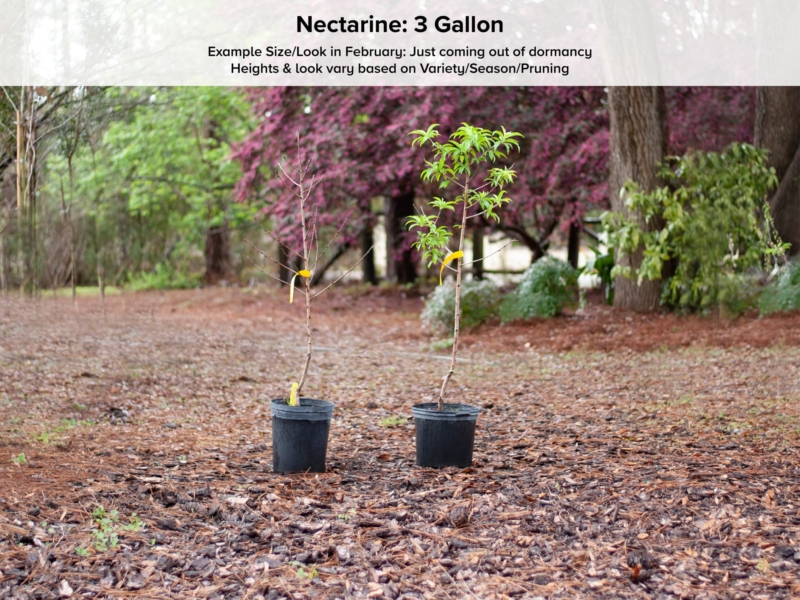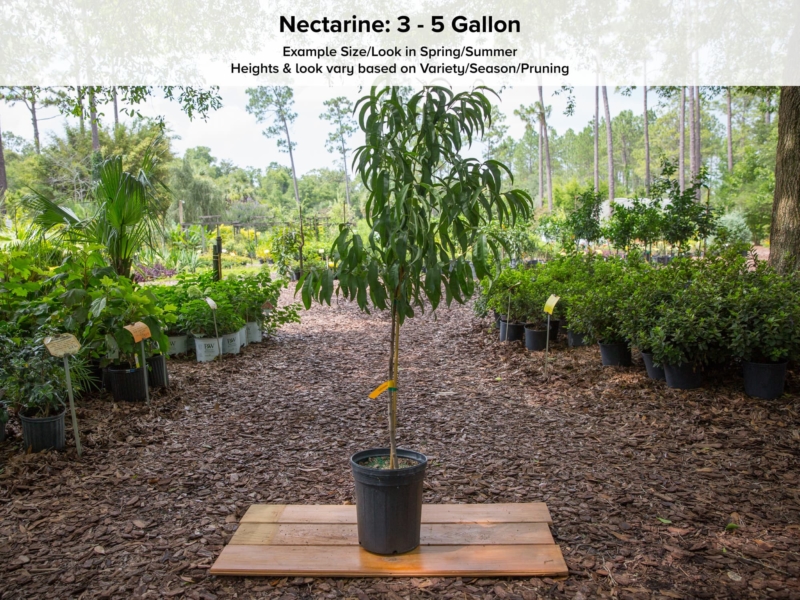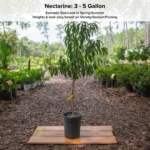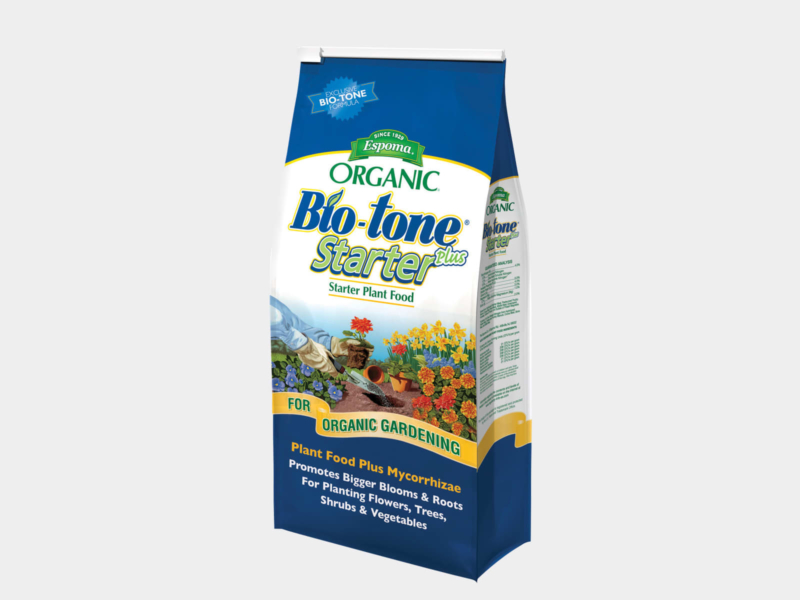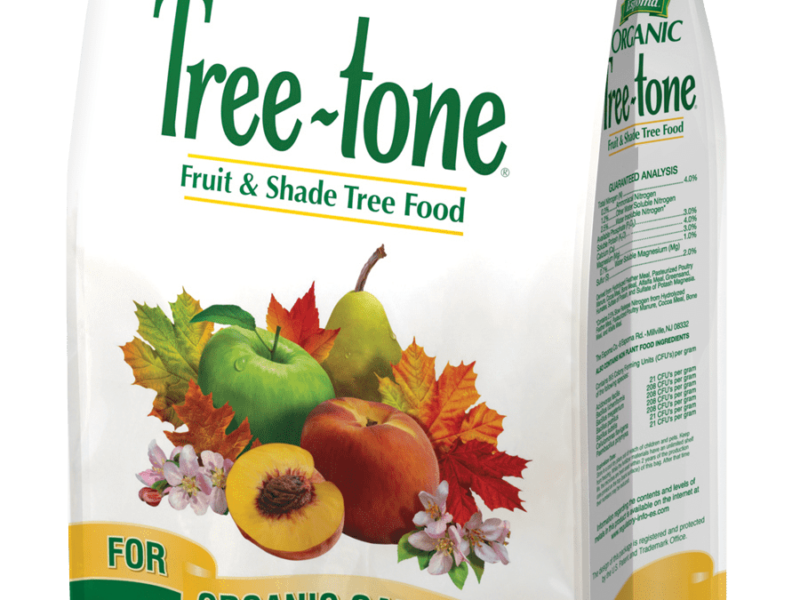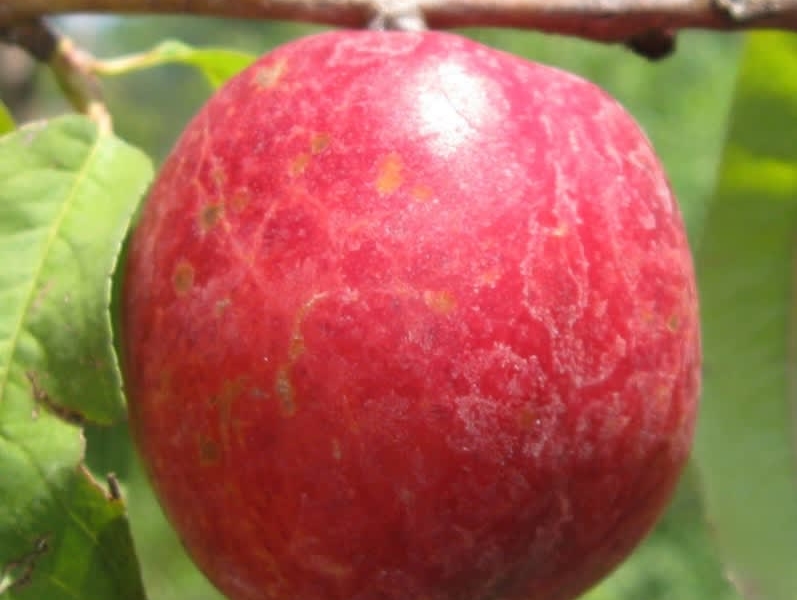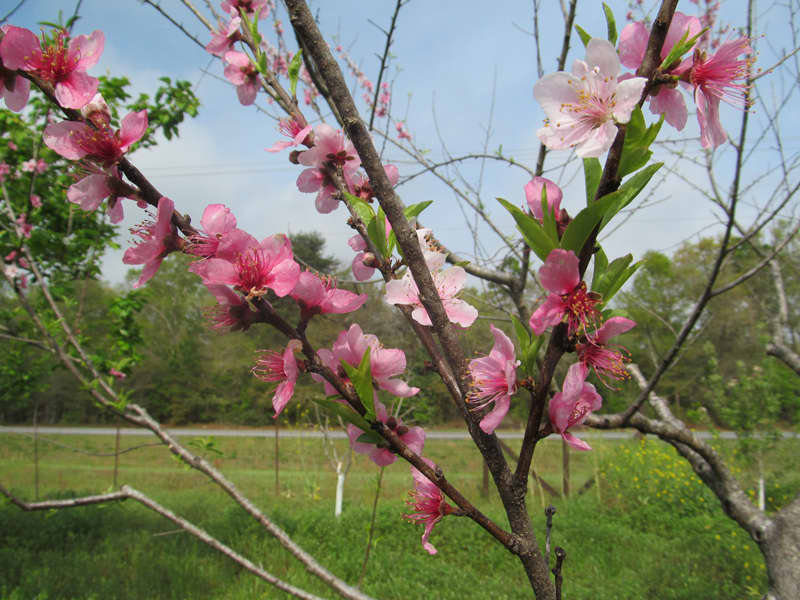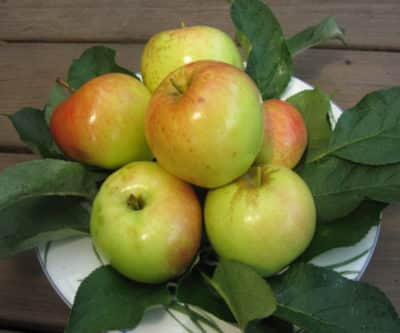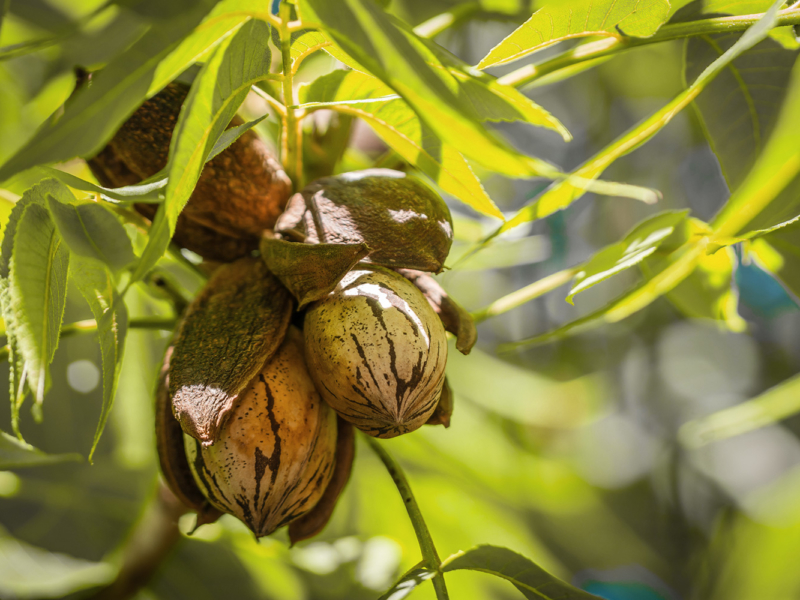Sunglo Nectarine Tree
100% Shipped in Pot, Just like buying in person.
The Sunglo Nectarine Tree is a perfect addition to your garden, offering juicy and flavorful nectarines right at your doorstep. Order online now for a taste of summer all year round.
Out of Stock
This product is currently not in stock. Please add it to your wishlist to be notified when it’s available.
Recommended with Sunglo Nectarine Tree
- Product Description
- Planting & Care
- Shipping Info
Sunglo Nectarine Tree: Savor the Blush of Orchard-Fresh Flavor
About the Fruit
Indulge in the lusciousness of the Sunglo Nectarine, a stone fruit aficionado’s dream. This variety is renowned for its large, freestone nectarines, brimming with juicy sweetness and a hint of tang. The smooth, vibrant skin and succulent flesh make Sunglo Nectarines perfect for fresh snacking, baking decadent desserts, or creating mouthwatering preserves. Each bite is a testament to the sun-drenched days they bask in, delivering a taste that’s simply unforgettable.
What to Know About the Tree
The Sunglo Nectarine Tree is a deciduous marvel, shedding its leaves in winter and awakening in spring with a show of delightful pink blossoms. This sturdy tree not only provides a bountiful harvest but also adds seasonal interest to any garden. It is a manageable size, often reaching 12-15 feet in height and width, and is favored for its robust nature, making it a resilient choice for growers in a range of climates. The Sunglo Nectarine Tree thrives in full sun and rewards with both visual splendor and fruiting reliability.
Harvest Season
Anticipation peaks in the heart of summer, as the Sunglo Nectarine Tree reaches its harvest crescendo. Gardeners delight in the abundance of ripe, radiant fruit that is ready to be plucked from the branches. The mid to late summer harvest is not just a time for gathering these delectable nectarines but also a period for savoring the fruition of your gardening endeavors.
Enhancing Your Fruitscape™
Imagine the Sunglo Nectarine Tree as a cornerstone of your very own fruitscape™, where its seasonal transformations bring a dynamic flair to your outdoor living space. In spring, its blossoms paint a pastel masterpiece, while in summer, the lush foliage and sunlit fruits create a vibrant tableau. As a standout specimen or part of an edible orchard, it lends both beauty and practicality to your garden. With Just Fruits and Exotics, you receive a tree shipped 100% in pot, complete with superior packaging and easy shipping. Experience the joy of a nationally recognized, family owned and operated nursery that delivers a trusted, local-friendly vibe right to your doorstep. Elevate your fruitscape™ with the Sunglo Nectarine Tree and relish the harvest year after year.
| Chill Hours | 800 c.u. |
|---|---|
| Cold Hardy | (20°)-(15°) |
| Grafted | Yes, on Nemaguard or Flordaguard rootstock |
| Growing Zone | 5A, 5B, 6A, 6B, 7A, 7B, 8A, 8B |
| Mature Height | 12-18 FT |
| Mature Width | 12-18 FT |
| Pollinator | Self Fertile |
| Spacing | 12-15 FT |
| Sunlight | Full Sun |
Recommended Fertilizers
Starter Fertilizer: Kickstart with Espoma Organic Bio-tone® Starter Plus. This potent blend boosts root mass and aids in mitigating transplant shock, ensuring your plants thrive in their new home.
Maintenance Fertilizer: For continued growth and fruit production, we recommend Espoma Organic Tree-tone Fertilizer. Designed specifically for fruit trees, this balanced formula nourishes your plants, promoting vibrant growth and bountiful harvests.
Fruitscaping™ with Nectarine Trees
Welcome to the delightful world of Fruitscaping™ with our Nectarine Trees. These hardy trees, close relatives of peaches, provide a summer bounty of juicy, sweet, and slightly tart fruits that can be enjoyed fresh or utilized in a variety of culinary delights.
Nectarine trees are known for their vibrant spring blossoms that add a burst of color to any landscape. The blooms give way to smooth-skinned fruits, savored for their succulent texture and superior flavor. Use them fresh, bake them into pies, or preserve them for a taste of summer during the colder months.
Thriving in full sun and well-drained soil, Nectarine Trees are robust and moderately easy to grow. Their size can be controlled through proper pruning, making them suitable for various garden spaces.
The Nectarine Tree’s round canopy and glossy green foliage make it a beautiful addition to your Fruitscaping™ design. Consider planting these alongside plums and apricots for a diverse harvest and a garden brimming with colors and fragrances.
Our Nectarine Trees are a fantastic choice for home gardeners seeking a rewarding gardening experience. From planting and care to harvesting your own nectarines, embark on a fruitful journey with Fruitscaping™. Enjoy the sweetness of summer right from your backyard with our Nectarine Trees.
Growing Guides
You can find many planting & care guides on our growing guides page.
Shipping Restrictions
Unfortunately, We Cannot Process Orders to California, Hawaii, Alaska, or Internationally: Please note that due to specific agricultural regulations, we’re unable to ship any plants to the states of California, Hawaii, and Alaska, or outside the United States. Additionally, citrus trees can only be shipped within the state of Florida.
Shipping Information
Before Your Plants Arrive: You can find many guides on unpacking, planting, & care, on our growing guides page.
The Journey From Our Nursery to Your Door: We NEVER ship our plants bare root. Your plant will travel in the very container in which it was nurtured. We thoroughly prune and water them before packing, and make sure they’re well wrapped to retain moisture during transit. It’s as though you’ve personally collected them from our nursery!
Choose Your Ship Date: We understand you’ll want to be available when your plant arrives. Our checkout process features a handy calendar that allows you to choose the Monday on which you want your plant to ship. Depending on your location, you’ll likely receive your plant by Wednesday, Thursday, or Friday of that week. Once shipped, UPS will generate a tracking number and send it to the email you provided. You can then follow your plant’s journey and ensure someone is available to unpack it on arrival day.
Click Here To View Our Shipping Page For More Information & Packing/Unpacking Plants Videos
Growing Calendar
- Planting
- Pruning
- Harvest

